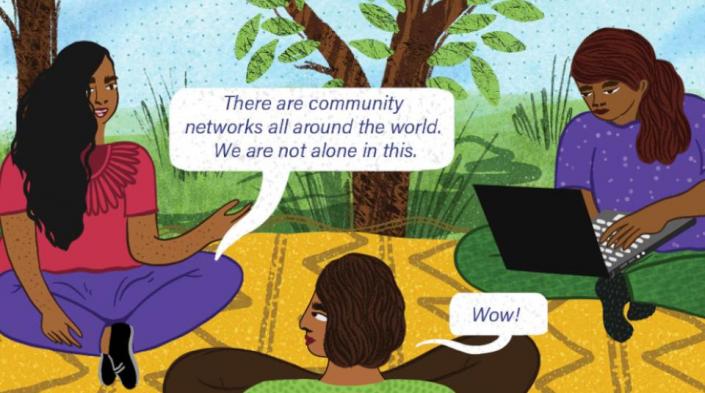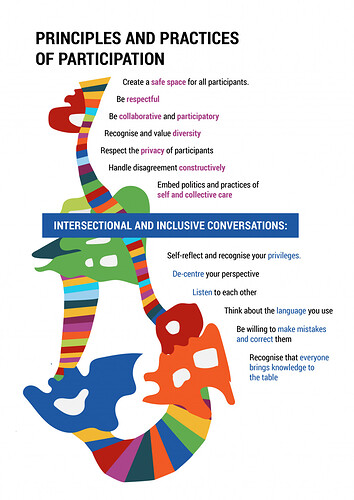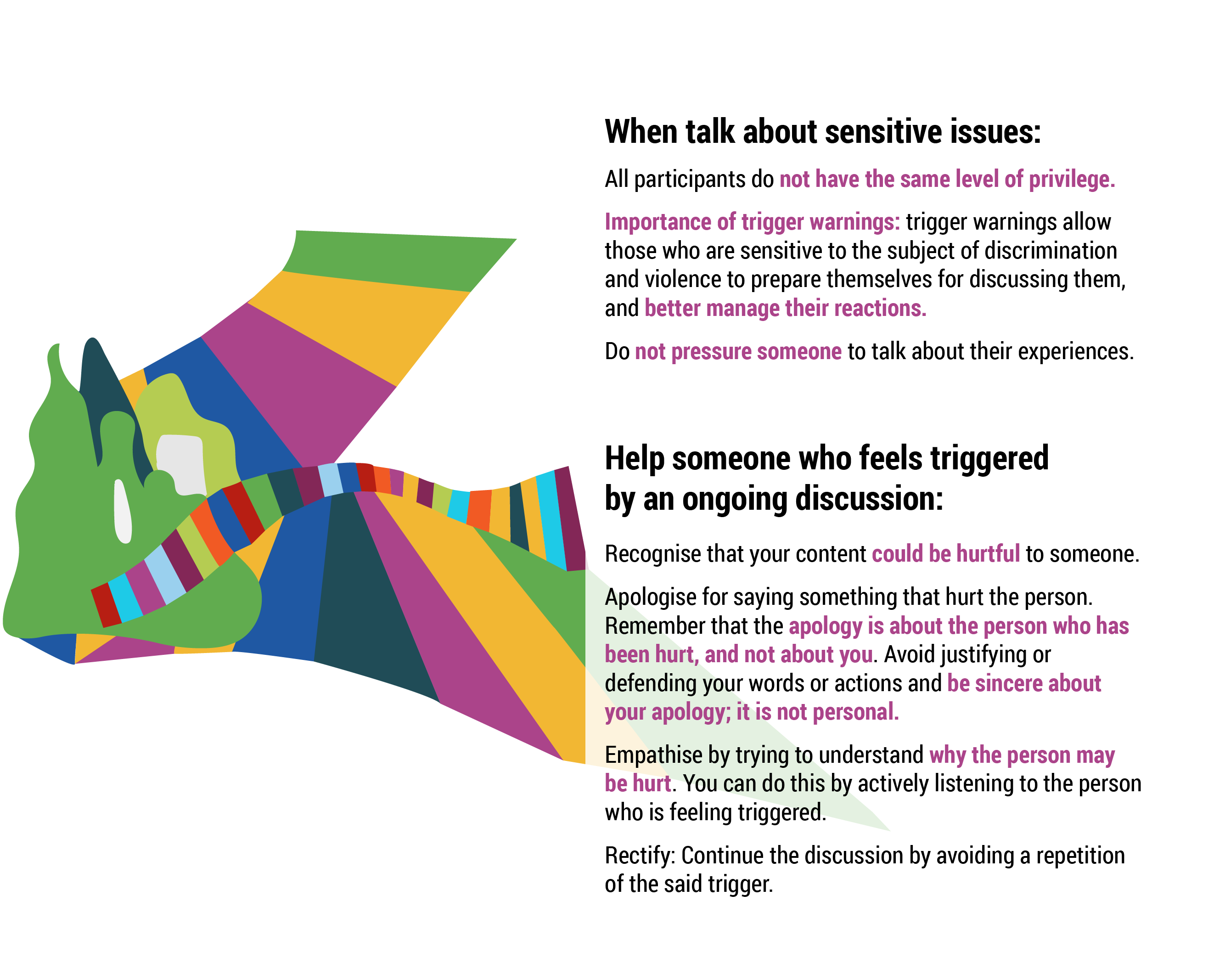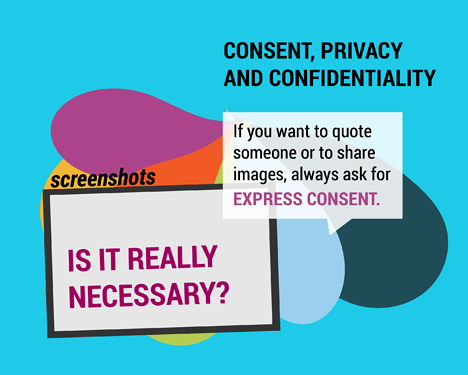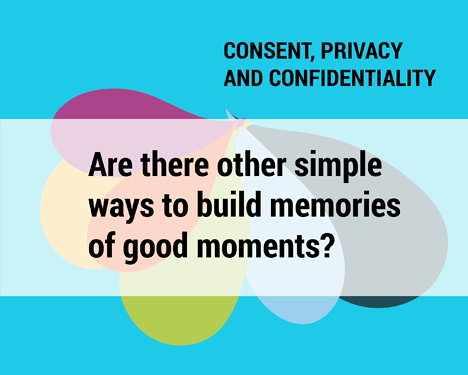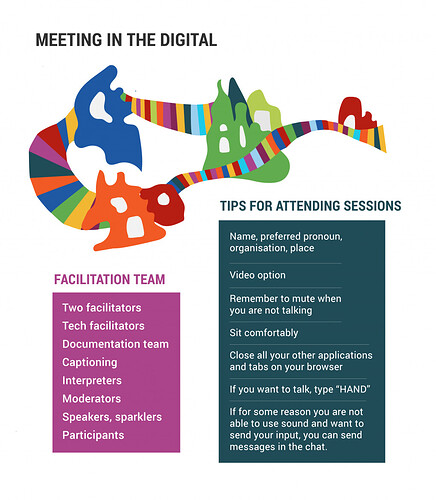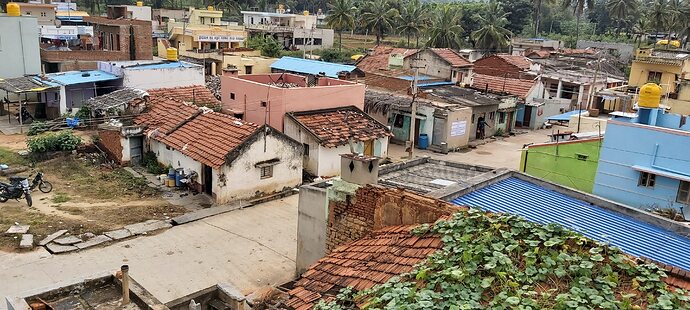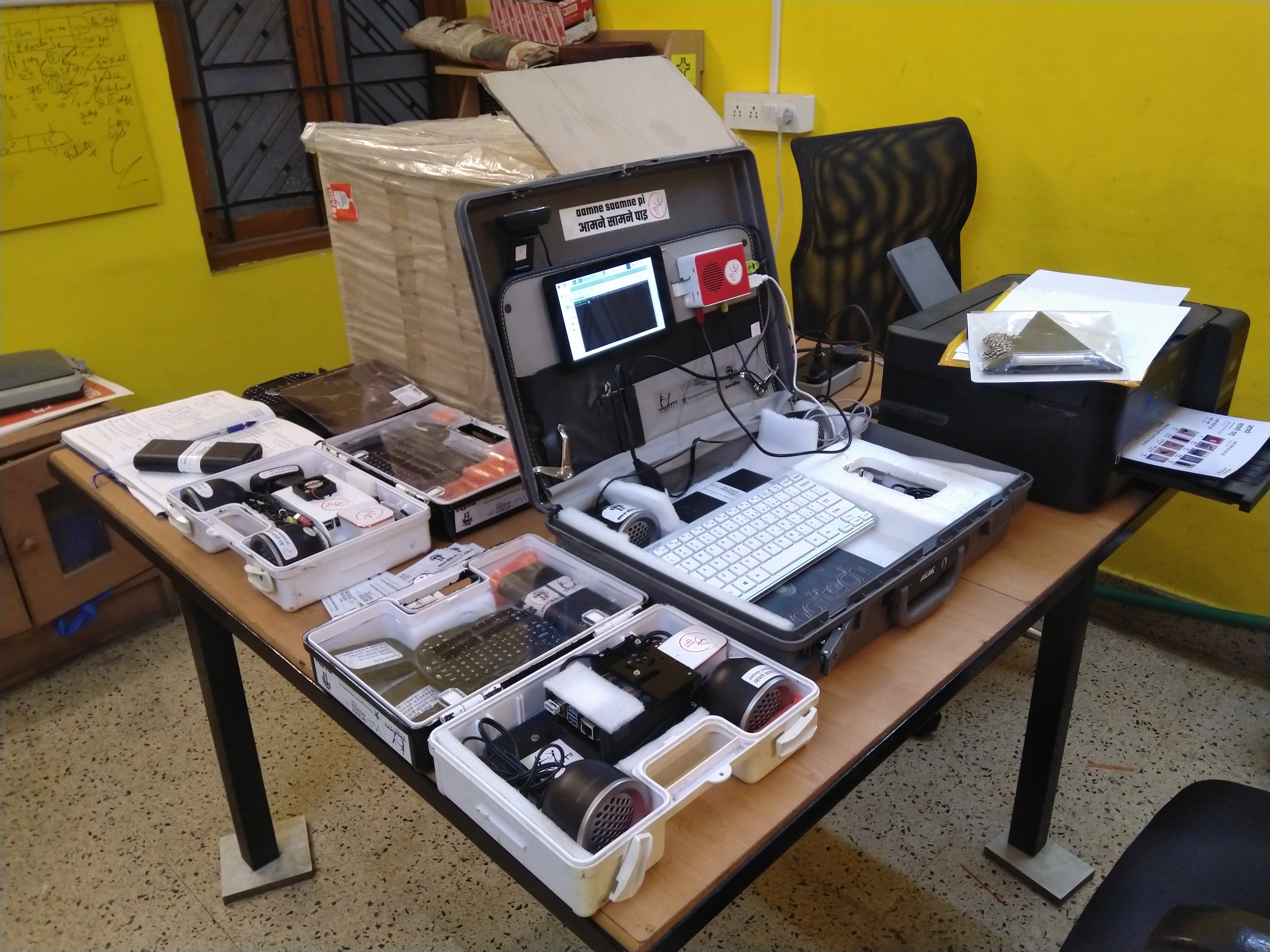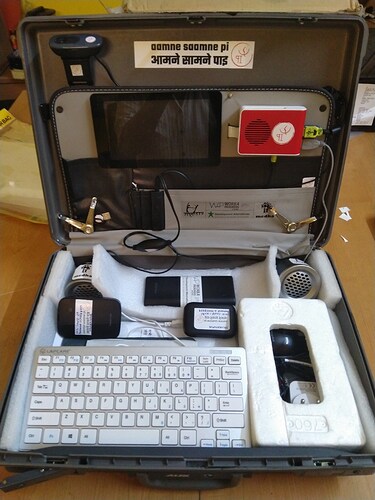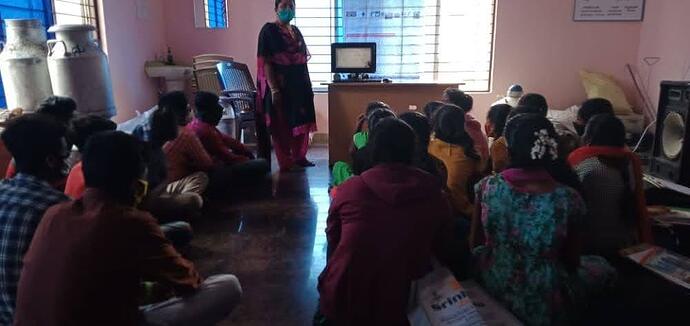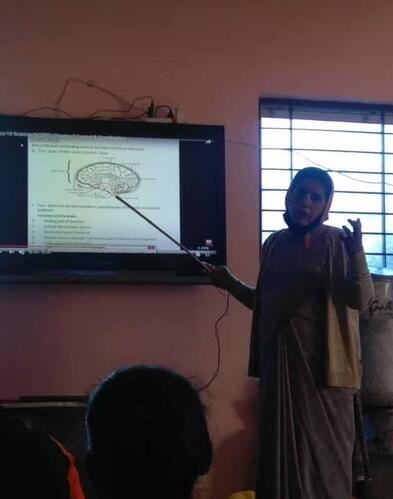Transcript
Guests: @doreen , @shalini, @shifu, @Risper
Moderator: @radinamatic
Presenter: @nicopace
Notetakers: @Nil and @deborabr
Introduction by Nico: 2nd webinar in the series of tech talks, to stimulate the community to dig into relevant topics. Session will be recorded. If there are questions or voncersations OFF, please wait for the end, when we stop recording.
STARTING RECORDING
Nico: Wlecome to the 2nd tech talks session. Nico, tech and innovation coordinator of Locnet. A pleasure to have an interesting group of women, hope you will enjoy the panel and thanks for joining.
Radina will be our moderator today.
Radina Matic is an Accessibility Designer at Learning Equality.
She has an M.A. in Digital Content Management with focus on Accessibility from University of Barcelona (Spain), and brings over 15 years of multinational experience in accessible technical communication and delivering of localized digital content.
She joined Learning Equality 6 years ago while in graduate school, and managed projects around accessibility, quality assurance, documentation, support and training for users and translators of the open-source tools in the Kolibri ecosystem, specifically designed to support offline-first teaching and learning in low-connectivity contexts.
…passing the mic
Radina: thanks for the invitation, honored to facilitate the exiting talk on education an CN opportunities. 4 women invited:
@doreen: I am Doreen Luhanga. I work with Centre for Youth and Development in Malawi 1. Education is the center of our community network, we connect secondary schools over a network so they can share resources we also contribute to the development of local educational content which is used on Kolibri.
@shalini: Shalini works with Janastu.org on community network activities. She coordinates all activities and financial reporting needs of the organization. She is also part of the tech support team and directly interacts and engages with the community for their needs. She maintains and manages free software repositories and web software systems on dedicated linux based servers.
@shifu: Shafali is graduating in new media design. Her work involves creating links across the fields of art, science, culture, technology to create new definitions and explore new horizons. As part of the Janastu Collective, she is engaged in Milli work, enabling archives for a diversity of stories and with young women in rural areas to help gig enable them, by inculcating a culture of media making.
@Risper: Risper Akinyi is a gender and community coordinator for TunapandaNet, a community network located in Kibera - an urban informal settlement in Nairobi, Kenya. She is passionate about community development through socio-economic empowerment.
Her main focus is on community capacity development, community research, stakeholder engagement, and public participation in policymaking. Risper holds a Bachelor of Arts in Gender and Development from Kenyatta University.
In the session we will her from experiences from the 3 organisations and hear about the multi dimensions of these learning spaces and walk away at least with one new idea.
Radina, talking about her role in Kolibri development…maybe we will hear more about the technology but also interested in the uses
Traying to decenter my perspective currently living in the global north
Let’s start: What are the main problems we are working to solve?
Why are we here and why do we do what we do? What is unique?
Doreen: I will go ahead. As said earlier, working with CYD Malawi. The main problem is lack if information and resources, the student books copies are limited and the number of teachers (1 every 130 students), too. Hence we went for Kolibri as an alternative. The main problem so is access to information
Provide computers to several schools. Malawi, lack of education resources for secondary schools
Ratio of 1 : 10 book per studnets
Ratio 1:130 teachers
Not enough teachers to intereact with studens and not enough books& resources for students to interact with
Kolibri to alternative method of information
Main problem is access to information material
Radina: is there anything that you would describe as unique?
Doreen: the main focus is 3 secondary schools and to connect them. We are focusing on the schools and not the communities yet.
Shalini: work for Janastu. Work in a CN in a valllee reagion, some 200km from Bangalore, India. Always wanted to archive the local content, from first mesh network setups. But since Covid observing how some could attend online clases in cities but what happend in rural spaces. How to provide conent/internet to those kids. Trying to connect schools. Since 2020 when lockdown happend, teaching kids outside of the schools, distributing notes. How could the mesh networks help the schools and teachers for education needs. Setting up Raspberry devices, running on low power and conectable to different devices.
Shafali: we are looking to education to introduce these Raspberry pi devices, we tried to accommodate their needs of discovery and expression.
Looking at education not in it’s traditional form, but also with a storytelling approach and working with media making.
That was one unique thing in our context.
Risper: Nairobi Kenya, as mentioned I am the gender and community coord for Tunapanda.
For the residents here, lack (…) of ICT devices for social economic empowerment
The school Tunapandanet is most oriented to education and research, we could easly link to teachers to have content creation and dissemination with students. (…)
This kind of content was very much contextualized, uses the local language, so it makes easy to pass trought the community.
We have links to primary and secondary shools and a learning house - for instance, we
Radina: could you share more details about the technical approach? or strategies?
Risper: localizing the content was a big thing for us, and engage teachers and students to create the content and engage in the online spaces. So we created ICT
Teacher already have a clear understand of the content. They help us, they encourage the students. If want to engage them in any kind of digital literacy, it is so much easy to do it in the school. We distributed the materials that already exists, in Libraries for examples. We benefit from the school enviromental.
Shafali: when looking to this lens of digitsl content, we are challange to break with the stigmas. This concept of communities on device came forward, it could be connected to the internet or the mesh network. We use raspbarrypi devices and work to desmistphy techologies. We make this device called ASPI (Aamne Samne Pi) and this young connected to this devices and it was more easy to get this community perspective. we give this devices to girls and we promote some facilitation regarding how they could articulate their expression on it.
Shalini: requesting more photos from Nico. This is during the pandemic, using the device in a science class. The devicse with the smaller screen did nit work well. So connected the ASPI to a bigger screen, a TV, the Raspberry device kept behind the screen.
Radina: The ASPI devices are located in the community?
Shalaini: Yes, all devices in the community, the TV donated by the community, too. We gave ASPI devices to girls in communities, connected to dongles but not sure at first how to connect, but we identified a network and asked them to connect to get material for their classes
Radina: thank you Shalini and we have Doreen. Can you share your approaches of the main problems?
Doreen: a lot like what Risper just explained, but we do not have a customized platform, we use Kolibri. For the content we work hand in hand with the teachers, they tell us which topics they would like for the classes and how they want to have things digitized, or things made into videos and slides, we go through each of the topics and come up with something together. But then we also saw the teachers were reluctant so we started also to colaborate with (…). Working together with teachers from different schoold. Already 5-6 subjetcs working on. In Malawi only in recent years some organisations and government started to digitate content, we strated form zero, with the teachers to make it available in Kolibri. Also in terms of content creation. At the moment quite official syllabus content. We hope other will join to produce content.
Radina: an important point, to have content aligned to the curriculum, if not teachers a hard time. Also important point to collaborate with other actors from the community. I only have one last question for the whole group and then we can engage in more informal discussions. Could you share about the main disrupters of your work?
Shafali: looking at disruptions, there are so many. Sometimes the physical offline/online thong. Often the internet connection is not relyable. How do we ensure that the infrastructure is maintained and constantly used? And also the thing to create engagement genderwiese. New models of community ownership and accountability. On the long run: impportant to invest lots of time and energy. Allways a conflict of how individuals work and engage. What motivations does the community has to constantly engage with the platform?
Radina: realy important information…
Shalini: I would like to talk about the tools we have used accesing the contet. having given the device we just explained how to share the content amongst the network on a local level. Then more schools and the whole community involved. We explored Kolibri, how to upload and download content from the Internet. Since based on RaspberryPi can only hold few content, we cannot set up a Pi server. So content access is a big challange. How do we store much content in a small device. Stil thunking of how to do so…please share.
Radina: yes the technical problem of devices with not enough space is a shared problem. But talking about engagement, how to continue to keep them engaged?
Shalini: sorry, I think I lost
Shafali: I think the file sharing thing is important. Also think about monitizing options, in terms of entrepreneurship. Filesharing does help but must also need to other things that can happen. Just filesharing has not been succesful for us until now
Radina: a goof place for Risper to respond, in Tunapand a training for workskills for community members.
Risper: For us, as I was mentioning on training and skills, we did develop an e-learning platform called Soma, installed in a data center it has access to offline and online content. Everyone connected to Tunapanda net )online ore offline) can access this content. Easy access, an advantage. The challenge come in when we talk about devices, people need a mobile phone or a laptop and in Kenia the educational system does not allow the general usage, so can only be done in special locations. However, some place connected in schools, a request in schools, mobile penetration very high. A mobile phone can easily do waht a computer can do. Teachers can access now but students would still need a computer lab to meaningful connect. Some community members are nor interested in supporting communication, we need more publicity. Another challenge is also that we need more support, different aid groups, gender, people with disability and we have not found out tool for the moment that can cater for everyone. Agree to Shalani: still notserving all, only half of the community, we need to breach that gap.
Radina: it was interesting to hear, and noticed the shared challanges among these organisations. Engage and mantaining their own devices in communities.
Doreen: The first is that teachers adopting digital methods of teaching – most of the teachers don’t have the basic knowledge of computers and the technical part of it was one of the things we are facing. The other is on the student side, computer use is not mandatory for students, so some students have access to it and others didn’t and we have a drawback here in terms of the students that are not familiar with this use. We also have to pay for providers, the ones that own the towers, and that was costly. Mostly, when it comes to the content and the use of it, the technical know-how and how to use these resources are a challenge.
Radina: Thank you Doreen, we also shared similiars experiences with partners. I will not call names, pls jump in to share - some of you mentioned the challanges around teachers adopting technologies - if someone have strategies to share on this from they experience, pls, it would be helpful.
Doreen: For us, to assist teachers, we did some assessment - how often they are using the computer? This could give a look if they were using as much as they need. Also, colected Kolibri log sessions, which was able to tell us how often the students were accessing the computers. We tryied to identify why they aren`t acessing as mush as possible. And we are able to get feedback from the schools
Radina: thank you for the info on how you manage to access the gasps and the needs
Risper: We engage them to give us ideas. We also have our WhatsApp group, where the teachers and the Tunapanda team were able to chat and do problem solving
Radina: You are not alone in creating spaces for teaching exchange, share frustation and receive support from their own teachers community.
I would like to hear from you if you try to measure the impact of the initiatives?
For us, especially for the trainings,we have achievements with the teachers, they just come back and tell us about it. We start with the basics, using email e.g., and when they have they own email account during the pandemic - when schools in Kenya are closed – teachers now look for other ways they can teach and that brought other online tools to their routine, such as Zoom. And with the schools connected, with free access to the internet, the teachers are able to learn on this side. Another thing, we saw so much entusiasm from the teachers on bringing new ideas on content. We have achievments with the teachers.
You are trying to maintain constant channels of communications to get info of the impacts and share additional needs they may have.
Shafini: Since we are all connected to a small number of people, we have a feedback, not only between teachers but also facilitators and students. So how can all learn to articulated their thoughts and expressions. Important be able to use technology, mobile devices or RabperryPI. The other thing is, we base everything on the output created. In every sessions trying to transform expressions into output
Radina: I can see how you assiciate impact with output, how this is valuable for output. We still have 20 something minutes. Nico are there questions from the forum?
Nico: no, but please post them in the chat, I can move them into the forum then. I will keep track
Radina: so I will continue with my own questions and see if something comes out in the forum. Given my work in accesebility, always interested in experiences with diversly abled learnes, trying to make use of content/connectivity in the CNs? How do you support inclusivity? Please also others share, come in…
Risper: Being the gender coordinator and working with the community directly I think that in our approach it is easier and we try as much as posisble to create awareness. When we do trainings for teachers, let every student, especially disabled or physically challenged, just to get them all in one place, because sometimes people need a long time to understand online spaces and need support. It is something we are seariously thinking about, how to be inclusive weith people not able to see or hear the platform we are creating.
Radina: yes, offer accomodation, is somethink to keep in mind. In Kenia there are organizations Ekitabu, producing accesible ebooks and they have a really great training material for content creators, accesible content, a reference, they have a youtube channel with sign lagnuage, check it out. You could establish connections.
Radina: Another curriosity: how does your work involve government entities, both in infra and the learning. Is there any change in terms of collaboration. Who has something to share?
Doreen: in our CN working with ICTA government branch, ICT focus. Trying to work hand in hand with them to get a license for our CN, lobbying for licensing, the closest relations.
Risper: we don’t have any current partnership with the government. But there was a time when government provided infra, capacitiy builidng and content. Digischool But it did not take into consideration schools not run by the government, and those are the schools in onformal government, we are trying now to bring this content and opportunties.
Radina: interested in changes/actions during the pandemic, in relation to state actors…
Shalini: 2 points to add: 1st: how to include the low literate, that cannot read or write. It is still tough, how to include them. We try bring radio into action, how the community gets involved and content shared by audio, but still it is a long way to go, not English based but local language based. 2nd: working with government, not tied to any gov. program but trying to see how to trigger changes. Ex. when bringing up Intenret over mesh, when the connection broke, a few people came running, trying to get reconnected to finish identification…government should be aware. people do not have access to a access services…important to take into account those needs.
Shafali: during Covid nobody really talked about how people can connect to those places. How can children from multiple schools connect to it. How to move to online spaces.
It is also about the content you are not able to acess because it is in a different language. Some one comes in and changes the narration to their own language. We have this kind of this audiovisual platform called Papad that we are trying to build up. It is focus in different narration, and visually see things and try to communcate this way.
Radina: thank you, especially for mentioning people with a lack of skills for mobile apps
Radina: Since we are entering the final 5 minutes, first of all I want to give room for you ask questions to each other.
Nico: question from Micah:
I’m curious to understand better how people balance the variety of priorities and needs in requests for new content, given that it takes some effort to create, collect and organize content, and often requires specific skills and access to devices and internet. Have you found ways to help find balance there? Are there any challenges you want to highlight around this?
Shafali: What we are trying to do is to break down the video and see if two people would like to take it up - some for example do the script, someone the audio, another person the shooting. This is something that we have been trying.
Radina: the collaborative approach is something exciting to hear more about while the initiative evolves.
Risper: if we decide to do a video, we try to engage others, e.g invite a particular teacher, brings familiar places, names, scenarios for the content, so people relate to it. We also created comic content in issues such as security, connectivity - it is easily spread in the community.
Radina: if you have some other thoughts on this thread you can also go to the forum and answer Micah there. I have the last question, considering the pandemic, what has changed in your work?
Risper: at Tunapanda.net, people have seen more of the benefits to be online, we get to collaborate with more schools. The school and the people see the need of being connected. This was a shift for our working of CN.
Radina: thanks, Building ownership is important to success.
Doreen: in rural areas people don’t have access to devices, they use computers in schools. And with the pandemic and the schools closes, we are facing that challenge. We hope to increase the number of computers and have the schools open to allow access.
Shafali: thank you Radina for hosting. I think that one highlight for after the pandemic is that I have not met some people face to face or meet some communities. I believe that when you go there fiscally you get a better idea of that place, but we are forced to be in digital space only. I can talk to those people without being there, which is great, but it is interesting to think how it will be to have physical access to these communities.
Shalini: Seeing how some girls do the external communications with their family, for example, one of the girl’s mother came and she wants to know what that girl was watching on the device. There was curiosity and that makes us think about how do we bring the families and involve them.
Radina: thanks for touching on this point. Involving the families could have a huge impact.
Thank you all
